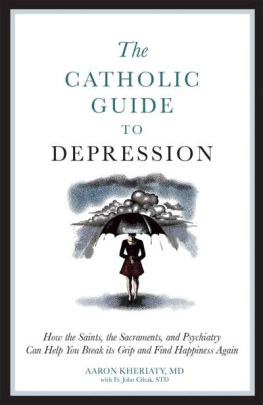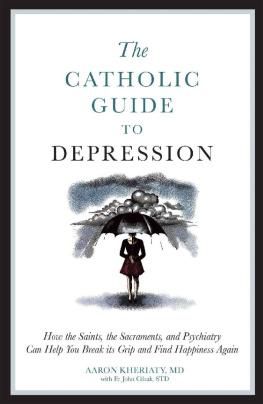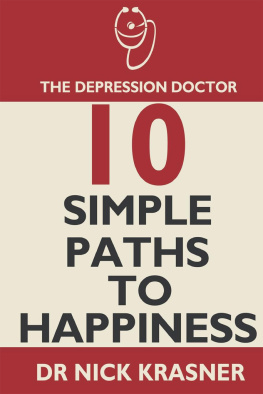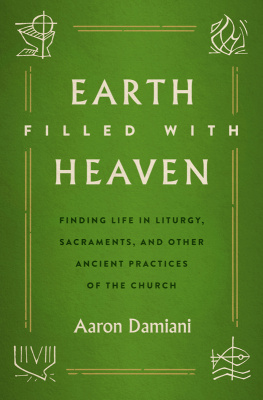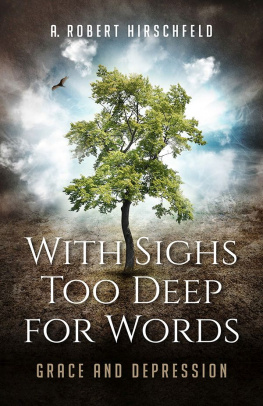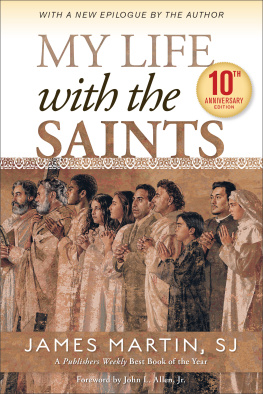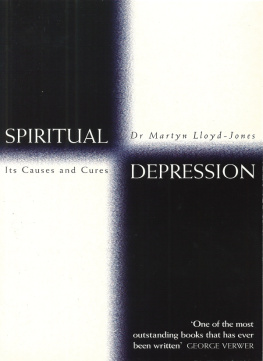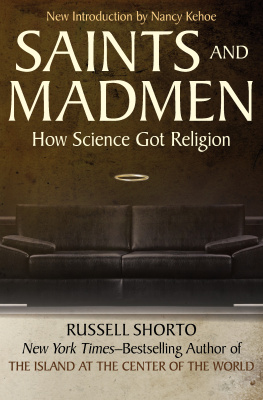The Catholic Guide
to Depression
How the Saints, the Sacraments, and
Psychiatry Can Help You Break Its Grip
and Find Happiness Again
Aaron Kheriaty, MD
with Fr, John Cihak, STD
SOPHIA INSTITUTE PRESS
Manchester, New Hampshire
Copyright 2012 Aaron Kheriaty and John Cihak
Printed in the United States of America
All rights reserved
Cover design by Carolyn McKinney
No part of this book may be reproduced, stored in a retrieval system,
or transmitted in any form, or by any means, electronic, mechanical,
photocopying, or otherwise, without the prior written permission of the publisher, except by a reviewer, who may quote brief passages in a review.
Sophia Institute Press
Box 5284, Manchester, NH 03108
1-800-888-9344
www.SophiaInstitute.com
Sophia Institute Press is a registered trademark of Sophia Institute.
Library of Congress Cataloging-in-Publication Data Kheriaty, Aaron. The Catholic guide to depression : how the saints, the sacraments, and psychiatry can help you break its grip and find happiness again / Aaron Kheriaty with Fr. John Cihak, STD.. p. ; cm. Includes bibliographical references. ISBN 978-1-933184-76-0 (pbk. : alk. paper)
978-1-622821-13-6 (eBook) I. Cihak, John R. II. Sophia Institute (New York, N.Y.)
III. Title. [DNLM: 1. Depression. 2. Catholicism psychology.
3. Spiritual therapies. WM 171.5] 616.85'27 dc23 2012029992
For Matt Allen and Gabriel Scheller:
Requiescant in pace.
Contents
Part I
Understanding Depression
Part II
Overcoming Depression
Appendices
Foreword
by J. David Franks, Ph.D.
Now that His heart is opened and His hands with wounds are lit,
There is no cross of our living where His body will not fit,
There is no sin of ours for which He has not a wound.
Oh, then, from Thine altar, Savior, come where Thy sheep are found!
See how Thy creature is pierced to depths profound! Paul Claudel, Coronal
The pain of history piles up, and depression seizes more and more. The advantages of the modern world are there to see, but an immense psychic cost is incurred. Constant innovation and movement have wrought dislocation and alienation, amplifying the anxiety of mortal existence. The book in your hands is essential reading for our time. Depression is the modern affliction, and Dr. Kheriaty, with help from Fr. Cihak, has attained to the profundity of this complex reality, which ultimately must be understood under the sign of solidarity.
Descent into Darkness
Life bears such simple and nourishing joy: the delicious air of evening, the radiance of natures under our questioning, the love of family and friends, generosity between strangers, the virtually infinite condensation of abundance in great literature and art and music, a good run when the air is dry, the vivifying spontaneity of children. To be sure, suffering intrudes in every life, but the sun rises, and most of us are able to start again. Even in the darkness, we yet see the glimmerings of exuberant life.
But some there are for whom darkness comes, and all light, and all memory of light, is obliterated. Every inhalation is a premonition of suffocation; possibility fails; time encases them in unbreakable concrete that stretches endlessly. A blackness closer and more invasive of marrow than the ninth plague envelops. A night falls in which dawn is incredible. Depression means englobement in a world without hope, even more unrelenting and unrelieved than Dantes passage through hell or the post-apocalyptic world of Cormac McCarthys The Road.
Some simple human hope is necessary or one cannot do anything. All of us get out of bed in the morning because there is something to be done, some desire to fulfill, requiring a basic ex-pectation that our powers can have effect in the world, that there are purposes worth pursuing. Depression means losing grip on simple human hope. It means losing the basic tendency or appetite to expand, to rise. It is to be trapped, and sinking.
Wisdom in Darkness
What Dr. Kheriaty offers here is an elegant work of Christian wisdom, synthesizing science, philosophy, and theology. No dramatic aspect of life, and certainly not depression, can be adequately accounted for without the Christian revelation of the human person as created in the image of God, redeemed in Christ, and called to Trinitarian communion. These are the plot points that alone render meaningful the trajectory of life.
God the Fathers plan of loving goodness, the set of providential stratagems to raise to eternal happiness every single human person, is completely concentrated in Jesus Christ, the Word of God, through whom all things were made, who descends without reserve into the sin-conditioned flesh of human existence, loving us to the end in total self-expenditure, pouring out the blood and water of his Sacred Heart into the channels of the world. Jesus, in the mysteries of his life, consummated in the Paschal Mystery, becomes the very fluid dynamics of all our staying and moving, of all our breaking and healing.
And the mystery of the Cross reveals even the meaning of darkness, depression included.
Christian anthropology secures a fact knowable by reason without sanctifying grace, but which often goes unrecognized without that grace: that the human person is a body-soul unity (integral humanism). And faith sees that this unity finds its measure only in the gracious initiatives of providence. This book shows the fruitfulness of the Catholic integration of faith and reason for en-gaging mental illness, eschewing, on the one hand, the supernaturalism/fideism/moralism that fails to see how the gracious life of God reassumes into itself all the schemes of recurrence of nature and history and, on the other hand, the materialism that misses the whole dramatic context of human life.
On the one hand, Christians often fail explicitly to maintain what belongs to their faith; in the religion of the Incarnation, integral humanism is central. There is a temptation among Catholics to explain away depression as if there were no medical issue involved simply a spiritual failure on the part of the sufferer. There is a powerful spiritual reality at play in depression, but the insinuation that the sufferer is somehow at fault gets things exactly backward: it is the innocence of the depressed one that is the key. This book descends into crucial details about mental illness, but it also, and even more impressively, descends into the mystery at the heart of this, as of all, suffering.
On the other hand, the dominant way of missing the unity of the human person is to reduce everything to material processes. Depressed? Take the right medication, and thats that.
The great medical progress of the modern world is dogged by the ambiguity introduced by a materialistic reduction of the human person. For instance, in medicalization, there is often segregation. We do not want to see suffering; as a society, we hide it away. We construct public spaces that have been sanitized, in which the question of suffering and death is tamed, made less urgent, less demanding of an impassioned quest on our part to seek the answer why. There is in fact no answer without true love, but that, most inconveniently for our consumerist desire, always means we must suffer along with the suffering.
The bourgeoisifying marginalization of suffering is a flight from solidarity; it is the pretense that life is really about being healthy, successful, beautiful, rich, young, independent. Suffering exposes this as a fatuous delusion. It interrupts the ideology of libertarian autonomy. It insists that there is no authentic exercise of autonomy not rooted in givenness, and therefore that there is no human life without a crying need for love. We depend radically on each other.
Solidarity in Darkness
Next page
